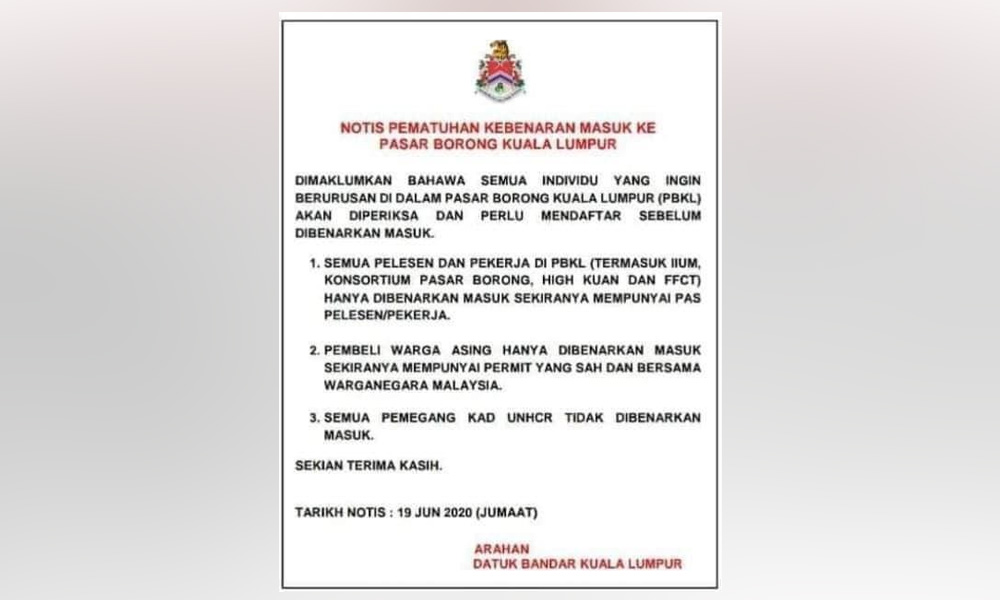Kuala Lumpur City Hall (DBKL) has confirmed a reported order banning refugees from entering the Kuala Lumpur wholesale market.
It said the notice dated June 19 was issued under the instructions of KL mayor Nor Hisham Ahmad Dahlan as a guide for officers on duty to monitor movements in and out of the market.
Referring to the ban in a statement today, DBKL said it saw "no need" for migrants to enter the market as transactions there are only for wholesale bulk purchases.
"If they need to purchase daily necessities, they can get it from other markets including the nearby Selayang wet market."
DBKL insisted that it had enforced stricter restrictions on movements of migrants after the initial Covid-19 outbreaks among migrant workers at the market which had led to its temporary shut down.
"This is to ensure that the market's operations can continue without repeated closures (for disinfection purposes) as it is a business hub in the city centre," it added.
Prior to the notice, DBKL announced last month that migrants were no longer allowed to work in the market.
"This has not only revived the market's surroundings but also gave it a new and cleaner image.
"To date, the market area is now more organised and safer," it said, echoing media reports which largely amplified anti-immigrant voices among the local community.
Aside from the ban on UNHCR cardholders, the notice stated that all foreigners with valid documents who wished to enter the market must be accompanied by a Malaysian.

In its statement today, DBKL said foreigners allowed into the market must be a registered worker with a wholesaler and accompanied by their employer.
As for other market workers and licence holders, it was stated that they would only be allowed entry with a valid pass.
Authorities had previously raided the market and its surrounding areas, leading to the arrest of hundreds of undocumented migrants - including Rohingya refugees - who used to form 90 percent of the market workers.
In April, the KL wholesale market - the largest in the country and a transit point for most of the fresh food in the Klang Valley - was temporarily closed for disinfection work and screening of workers for Covid-19 infections.
While the government did not put the wholesale market under an enhanced movement control order (MCO), it was required to close for two days on April 20-21, which was then extended for another two days to April 23.
The vicinity surrounding the wholesale market was placed under lockdown after the government identified a Covid-19 cluster at the wholesale market where 28 people were infected and a 36-year-old Myanmar man died.
Cases linked to the cluster have since been identified across several other states.

